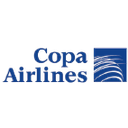Executive Secretary

IV International Scientific Conference "Challenges of Education 2025"
EDUCACIÓN 2025
I International Scientific Workshop "Towards an Innovative Didactics in Higher Education: DIES-2025"
Problem:
Currently, education faces the challenge of transforming traditional teaching practices to meet the demands of an increasingly dynamic and technological society. In this context, there is a growing need to explore active methodologies that promote more autonomous and meaningful learning. One such methodology is the flipped classroom, recognized as an innovative model that combines out-of-class learning with face-to-face sessions, allowing students to take a leading role in their education.
Objective:
The objective of this study is to conduct a critical assessment of the theoretical approach of the flipped classroom.
Methodology:
To achieve this, a systematic literature review was conducted following the eight-step guide proposed by Okoli and Schabram, complemented by document analysis of scientific papers specialized in the topic.
Results and Discussion:
The results show that the flipped classroom encourages student autonomy, the integration of technology, and collaborative learning, fostering the active construction of knowledge. However, theoretical limitations were also identified, such as the overestimation of students' self-management skills and insufficient consideration of educational contexts with limited technological access.
Conclusions:
It is concluded that although the flipped classroom offers significant advantages for learning, it is essential to contextualize its application and strengthen student support strategies to ensure its effectiveness.
Problemática:
En la actualidad, la educación enfrenta el desafío de transformar las prácticas tradicionales de enseñanza para responder a las demandas de una sociedad cada vez más dinámica y tecnológica. En este contexto, surge la necesidad de explorar metodologías activas que promuevan un aprendizaje más autónomo y significativo. Una de estas metodologías es el aula invertida, reconocida como un modelo innovador que combina el aprendizaje fuera del aula con las clases presenciales, permitiendo al estudiante asumir un rol protagónico en su formación.
Objetivo:
El objetivo de este estudio es realizar una valoración crítica del enfoque teórico del aula invertida.
Metodología:
Para ello, se empleó una revisión sistemática de la literatura, siguiendo la guía metodológica de ocho pasos propuesta por Okoli y Schabram, complementada con el análisis de documentos científicos especializados en el tema.
Resultados y discusión:
Los resultados evidencian que el aula invertida favorece la autonomía del estudiante, la integración de las tecnologías y el aprendizaje colaborativo, potenciando la construcción activa del conocimiento. Sin embargo, también se identificaron limitaciones teóricas relacionadas con la sobreestimación de las habilidades de autogestión del alumno y la insuficiente consideración de contextos educativos con escaso acceso tecnológico.
Conclusiones:
Se concluye que, aunque el aula invertida presenta ventajas significativas para el aprendizaje, es necesario contextualizar su aplicación y reforzar las estrategias de acompañamiento al estudiante para garantizar su efectividad.
About The Speaker

Dr. C. Guillermo D. Soler Rodríguez
Discussion
